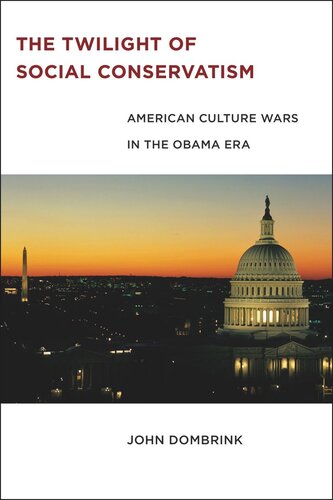

Most ebook files are in PDF format, so you can easily read them using various software such as Foxit Reader or directly on the Google Chrome browser.
Some ebook files are released by publishers in other formats such as .awz, .mobi, .epub, .fb2, etc. You may need to install specific software to read these formats on mobile/PC, such as Calibre.
Please read the tutorial at this link: https://ebookbell.com/faq
We offer FREE conversion to the popular formats you request; however, this may take some time. Therefore, right after payment, please email us, and we will try to provide the service as quickly as possible.
For some exceptional file formats or broken links (if any), please refrain from opening any disputes. Instead, email us first, and we will try to assist within a maximum of 6 hours.
EbookBell Team

4.0
16 reviewsDespite many Americans’ triumphant proclamations that Barack Obama’s 2008 and 2012 elections signified a post-partisan, post-racial society, it seems that the United States is more divided than ever. From the rise of the Tea Party, to strident anti-immigration and anti-welfare movements, to the so-called “war on women”, the United States on its surface appears to be caught in the turmoil of a culture war that has not relented since the Reagan era. But, as John Dombrink writes in The Twilight of Social Conservatism, the conservative backlash seen during Obama’s presidency is indicative not of a rising social conservative force in society, but of a waning one.
Drawing on demographic research, political polls, contemporary media, and internet commentary, Dombrink demonstrates that the vitality of major social conservative ideas from the culture war era has faded. Support for once-divisive wedge issues, like same-sex marriage and reproductive rights, has increased dramatically, and Americans, particularly young Americans, are less religious and more libertarian than ever before. As he traces the end of the culture wars and the “unwedging” of American politics over the last eight years, Dombrink is quick to caution that social conservatism has not disappeared entirely from view. Nevertheless, the once-prominent “Moral Majority” pushing for dominance in American culture is now reconsidering itself as a minority, and Dombrink argues that it is unlikely that social conservative forces will ever regain the power and potency they once held in American politics. A comprehensive and insightful work, The Twilight of Social Conservatism deftly analyzes the liberalizing trends that created the social and political culture America has today and that portend to the culture America will have in years to come.